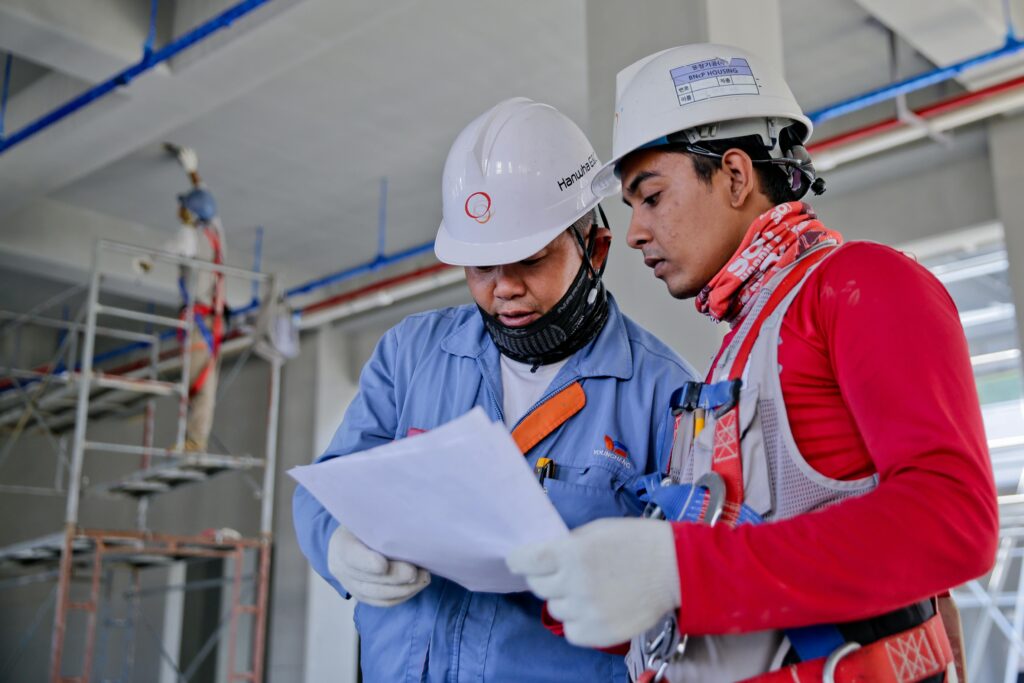Introduction to Security Guard Jobs in Canada
Canada, known for its safety and order, places a high value on security across public and private sectors. Security guards play a crucial role in maintaining peace, protecting property, and ensuring the well-being of people. From bustling urban centers to remote industrial sites, security professionals are in demand across diverse settings. In recent years, the demand for security guard jobs in Canada has grown, influenced by increasing urbanization, rising security concerns, and the expansion of commercial infrastructure.
The Role and Responsibilities of Security Guards
Security guards in Canada serve as the frontline of protection. Their duties range from patrolling premises, monitoring surveillance systems, controlling access points, to responding to emergencies. Depending on the job location and employer, these responsibilities may vary significantly. For instance, a security guard working in a shopping mall may focus more on customer service and crowd control, while one stationed at a construction site might concentrate on preventing theft and unauthorized access.
Security personnel are expected to maintain a visible presence to deter criminal activity, report incidents promptly, and collaborate with law enforcement when necessary. In addition, they are often trained in conflict resolution and basic first aid, enabling them to act swiftly and responsibly in various situations.
Types of Security Guard Positions
The security industry in Canada offers a wide variety of roles, each tailored to specific environments and risk levels. Some of the common types include:
- Commercial Security Guards: These guards work in office buildings, retail outlets, and entertainment venues. They handle tasks such as monitoring CCTV, checking credentials, and guiding visitors.
- Residential Security Guards: Employed by apartment complexes and gated communities, residential guards manage visitor logs, conduct routine patrols, and ensure the safety of tenants.
- Industrial Security Guards: Found in warehouses, manufacturing units, and construction sites, these guards protect valuable assets and oversee safety protocols.
- Event Security Guards: Temporary positions during concerts, sports events, or festivals. These guards are responsible for crowd management, access control, and ensuring the safety of attendees.
- Corporate Security Specialists: In larger corporations, security professionals may assume roles in loss prevention, risk assessment, or executive protection.
Qualifications and Licensing Requirements
To work as a security guard in Canada, individuals must meet specific licensing requirements that vary slightly by province or territory. In general, applicants must:
- Be at least 18 or 19 years old, depending on the province.
- Be legally eligible to work in Canada.
- Undergo a criminal background check.
- Complete mandatory training programs approved by the province.
- Pass a licensing exam.
For example, in Ontario, aspiring guards must complete a 40-hour training course covering areas such as legal authority, use of force, emergency response, and public relations. Upon successful completion, candidates can apply for a license through the Ministry of the Solicitor General. Other provinces, such as British Columbia and Alberta, have their own regulatory bodies and requirements.
Training and Skill Development
Training is a critical component of becoming a competent security guard. Accredited training programs, either online or in-person, equip candidates with foundational knowledge and practical skills. Topics covered typically include:
- Understanding Canadian laws and regulations
- Communication and report writing
- Crisis management and conflict resolution
- Emergency procedures and first aid
- Physical security systems and technologies
Beyond initial training, continuous education is encouraged to keep up with evolving threats and technological advancements. Many employers also provide on-the-job training to ensure security personnel are familiar with specific procedures and protocols.
Employment Sectors and Work Environments
Security guards are employed across a broad spectrum of sectors, including private businesses, government institutions, healthcare facilities, educational institutions, and transportation hubs. Each sector presents unique challenges and expectations.
In the healthcare sector, for instance, security guards may be required to manage aggressive behavior, assist in patient restraint, or secure restricted areas. In contrast, guards in educational institutions focus more on student safety, enforcing rules, and responding to disturbances.
Corporate environments often demand a higher level of professionalism and discretion, as guards may deal with sensitive information or high-profile individuals. Meanwhile, industrial and resource sectors, particularly in remote areas like oil sands or mining regions, may require guards to work long shifts in isolated conditions.
Salary Expectations and Job Outlook
The salary for security guards in Canada varies based on location, experience, and type of employment. On average, entry-level positions start at around CAD $15 to $18 per hour. With experience and specialized training, wages can rise to CAD $20 to $30 per hour or more.
In urban centers like Toronto, Vancouver, and Calgary, where the cost of living is higher, salaries tend to be on the upper end of the scale. Guards employed in high-risk areas, such as armored transport or executive protection, typically earn more due to the increased responsibilities.
The job outlook for security guards in Canada remains stable. As businesses prioritize safety and asset protection, the demand for trained and licensed security professionals continues to grow. The rise of private security firms has also contributed to increased employment opportunities across the country.
Challenges Faced by Security Guards
Despite the importance of their role, security guards often face a range of challenges. One of the primary concerns is the risk of confrontation or violence, particularly in high-crime areas or during volatile events. Guards must remain vigilant and prepared to de-escalate situations while ensuring their own safety.
Long and irregular working hours, including night shifts and weekends, can also lead to fatigue and burnout. The nature of the job may sometimes feel monotonous, especially in static positions where guards are required to monitor a specific location for extended periods.
Furthermore, security guards are occasionally undervalued or underappreciated, despite their vital contributions. Professional recognition, access to career advancement, and mental health support are areas that require continued improvement within the industry.
Career Advancement and Specialization
Security guard roles can serve as a stepping stone to more advanced positions within the security field or related professions. With experience and additional certifications, individuals may pursue careers in:
- Security management and supervision
- Private investigation
- Law enforcement or corrections
- Cybersecurity and information protection
- Emergency management
Specialized training in areas such as surveillance technology, threat assessment, or protective services can significantly enhance career prospects. Many post-secondary institutions and training centers offer diploma or certificate programs tailored to advanced security roles.
Additionally, security personnel can join professional associations such as ASIS International, which provide networking opportunities, resources, and certifications to support career growth.
Immigrant Opportunities and Considerations
Canada’s multicultural and inclusive society welcomes immigrants into various sectors, including security services. Many newcomers find security jobs as an accessible entry point into the Canadian workforce. The job often requires minimal prior experience and can be an effective way to gain Canadian work experience, language practice, and income.
However, immigrants must ensure they meet all licensing requirements and understand local laws and expectations. Language proficiency, particularly in English or French, is crucial for effective communication and report writing. Several community organizations offer resources and support to help newcomers navigate the licensing process and integrate into the industry.
Technology and the Future of Security Jobs
The security industry in Canada, like many others, is being reshaped by technology. The use of surveillance cameras, biometric systems, drones, and artificial intelligence is becoming more widespread. While these technologies enhance efficiency and coverage, they also require security professionals to adapt and upgrade their skills.
Security guards today may need to operate complex monitoring systems, analyze data for suspicious patterns, and use digital reporting tools. As automation increases, the human element—judgment, empathy, and real-time decision-making—remains irreplaceable. Guards who are technologically savvy and open to learning will find themselves well-positioned for future roles.
Gender Diversity in the Security Industry
Traditionally male-dominated, the security sector in Canada is gradually seeing increased participation by women. Female security guards bring valuable perspectives and skills, especially in roles requiring empathy, communication, and customer service.
Efforts to promote gender diversity through inclusive hiring practices and workplace policies are gaining momentum. Female-focused training programs and mentorship opportunities are helping to break down barriers and encourage more women to pursue careers in security.
The Importance of Professionalism and Ethics
Security guards are entrusted with significant responsibilities, including access to sensitive information and authority over certain situations. As such, professionalism and ethical conduct are paramount. Guards are expected to act with integrity, respect privacy, and maintain impartiality.
Adhering to a strong code of ethics not only builds trust with the public but also enhances the reputation of the profession. Employers often look for individuals who demonstrate reliability, good judgment, and a commitment to service.
Conclusion: A Vital and Evolving Career Path
Security guard jobs in Canada offer a stable and rewarding career for individuals seeking responsibility, variety, and the opportunity to make a difference. Whether serving in bustling urban centers or remote industrial sites, security professionals play a pivotal role in safeguarding lives and property.
With the right training, dedication, and adaptability, a career in security can lead to numerous opportunities for advancement and specialization. As Canada continues to grow and evolve, so too does the need for capable, ethical, and professional security personnel ready to meet the challenges of tomorrow.



